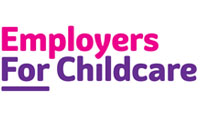Learning from the experience of 30 hours free childcare in England
In our Policy Manifesto for the 2022 Northern Ireland Assembly Elections, Employers For Childcare is calling for a new Childcare Strategy for Northern Ireland to be a day one priority for a new Executive. A Strategy is critically needed, and already long overdue, despite being a key commitment in New Decade, New Approach. We want to see an ambitious, fully funded Childcare Strategy which will support parents to access the childcare they need and providers to deliver it, while also benefiting children’s long-term development and improving their life chances through the provision of high quality, enriching childcare.
For too long parents, childcare providers and employers have had only the promise of a new Childcare Strategy to look forward to, and have been struggling for years in the absence of long-term investment. This is a struggle that is only set to worsen, amid the rising cost of living crisis.
So it is welcome – and only right –that, in the run up to the Assembly elections in May, we are hearing increasingly from political parties that they are committed to accessible, affordable childcare in the new mandate, and we would urge all parties to make good on their promises by putting childcare front and centre at the Executive as a matter of urgency.
While of course we welcome the pledges from our political parties of greater support for parents with childcare, we are cautioning against limiting focus to the introduction of a 30 hours ‘free’ childcare offer for children aged three to four, such as is available in England. Since its introduction in 2017, many issues have been identified with the implementation of 30 hours free childcare including how the eligibility criteria are targeted, and the significant underfunding of the scheme. These issues have caused difficulties for childcare providers and, in some cases, have actually pushed prices up for parents, or have meant that some children are unable to benefit from provision.
More information about the delivery of ‘free’ childcare and what is available across the countries of the UK is available in our article here.
Issues with the 30 hours ‘free’ childcare offer in England
Funding shortfall threatens sustainability of providers
There is clear evidence that funding provided by the UK Government for the delivery of free childcare hours in England does not cover the full costs for childcare providers in offering the scheme.
The extent of underfunding was revealed through an Early Years Alliance Freedom of Information investigation, the outcome of which was published in June 2021.
As a result, there is a shortfall in funding that providers must cover, threatening the sustainability of those settings delivering the places. This can lead to closure of settings, or discourage settings from offering the scheme – either at all, or to families seeking to use only the funded hours of early education and childcare.
Replicating the 30 hours free childcare scheme in Northern Ireland, without ensuring childcare providers are adequately funded to deliver the scheme, could therefore compound the growing crisis within a sector that is already struggling with its sustainability amid rapidly rising costs.
Increased costs for families
Perversely, the funding shortfall for delivery of the scheme means it is likely that parents accessing the ‘free’ hours will still face some charges, while fees for families with children who are not entitled to the free hours are increased.
A significant proportion of families in England who are able to access the free provision have seen an increase in charges for ‘extras’ such as lunches, nappies and outings. This has been flagged in a House of Commons Treasury Committee Childcare Inquiry which identified unintended consequences of the 30 hours free childcare scheme including:
- Additional charges for food and activities
- A requirement for parents to also be paying for additional hours
- Restricting access to ‘free’ hours to particular times of day, or days of the week.
Support needed for all parents, not only those of three and four year olds
The targeting of the 30 hours free childcare scheme at three and four year olds can mean that the parents of babies and young children who have not yet qualified for the free hours, because of their age, are effectively subsidising the shortfall in the funding subsidy for children receiving ‘free’ childcare. It also fails to reflect that parents with younger and older children also struggle to access and afford the registered childcare that they need.
In particular, our own research highlights the risk of increasing costs for parents of younger children, with parents who responded to the Northern Ireland Childcare Survey 2021 revealing that the times when it is most difficult to afford the childcare they need to work are when they are returning to work from parental leave, and when their children are aged 0-2 years.
Failing children from more disadvantaged families
There is also evidence that the scheme is widening the gap between disadvantaged children and their peers, disproportionately benefiting those from more advantaged families.
To be eligible for the full 30 hours entitlement, parents must both be working (one parent in a lone parent household) and earning above a minimum threshold. The impact of this is highlighted in research from the Sutton Trust which finds that the poorest three and four year olds are locked out of benefiting from additional hours of early education and childcare and, as such, are starting school educationally and developmentally behind their peers. This compounds inequalities, and is harming children’s life chances.
It can also impact negatively on parents who are out of work, but seeking to move back into work, and would benefit from being able to access childcare that enables them to attend education, training or participate in volunteering activities.
Childcare needs during school holidays
The full entitlement to 30 hours of free childcare per week is only available across 38 weeks of the year and, while it can be annualised across more weeks, this significantly reduces the ‘per week’ entitlement. Access to registered childcare during school holidays can be a real challenge for families, and can increase expense at particular times in the year.
Looking towards a bespoke, ambitious solution for Northern Ireland
This does not mean that there is no merit in learning from the 30 hours free childcare model. The model has the capacity to offer choice and flexibility to parents, where it can be delivered through a range of settings, and can be ‘annualised’ and spread over more than 38 weeks (outside of term time) to include holiday periods.
Through our work with families, many of whom are struggling to afford the childcare they need, we understand the attraction of a ‘free’ childcare offer, similar to that which has been rolled out in other parts of the UK. But there is a clear rationale against simply adopting a similar model in Northern Ireland without taking on board learning from its implementation. There is an opportunity instead to develop and target investment and support through a scheme that is unique to Northern Ireland, while taking on some of the best parts of what is available elsewhere in the UK, Ireland and in other countries.
There is a wealth of learning to be incorporated from experiences elsewhere, and a wide range of options to consider, in consultation with expert stakeholders, including parents, childcare providers, employers and academics. Much of this has been shared through the All Party Group on Early Education and Childcare, and with the Department of Education through a Strategic Insight Lab programme undertaken in 2021.
Building on this, we are calling for a consultation on a new bespoke Childcare Strategy – that meets the needs of all families, and the childcare sector as a whole in Northern Ireland – to be undertaken as a matter of urgency, and for the publication of an ambitious, fully funded Strategy to be a day one priority for the new Executive following the 2022 elections. Neither parents, nor childcare providers, can afford to wait any longer.
Employers For Childcare’s policy manifesto is available to download from our website here.






